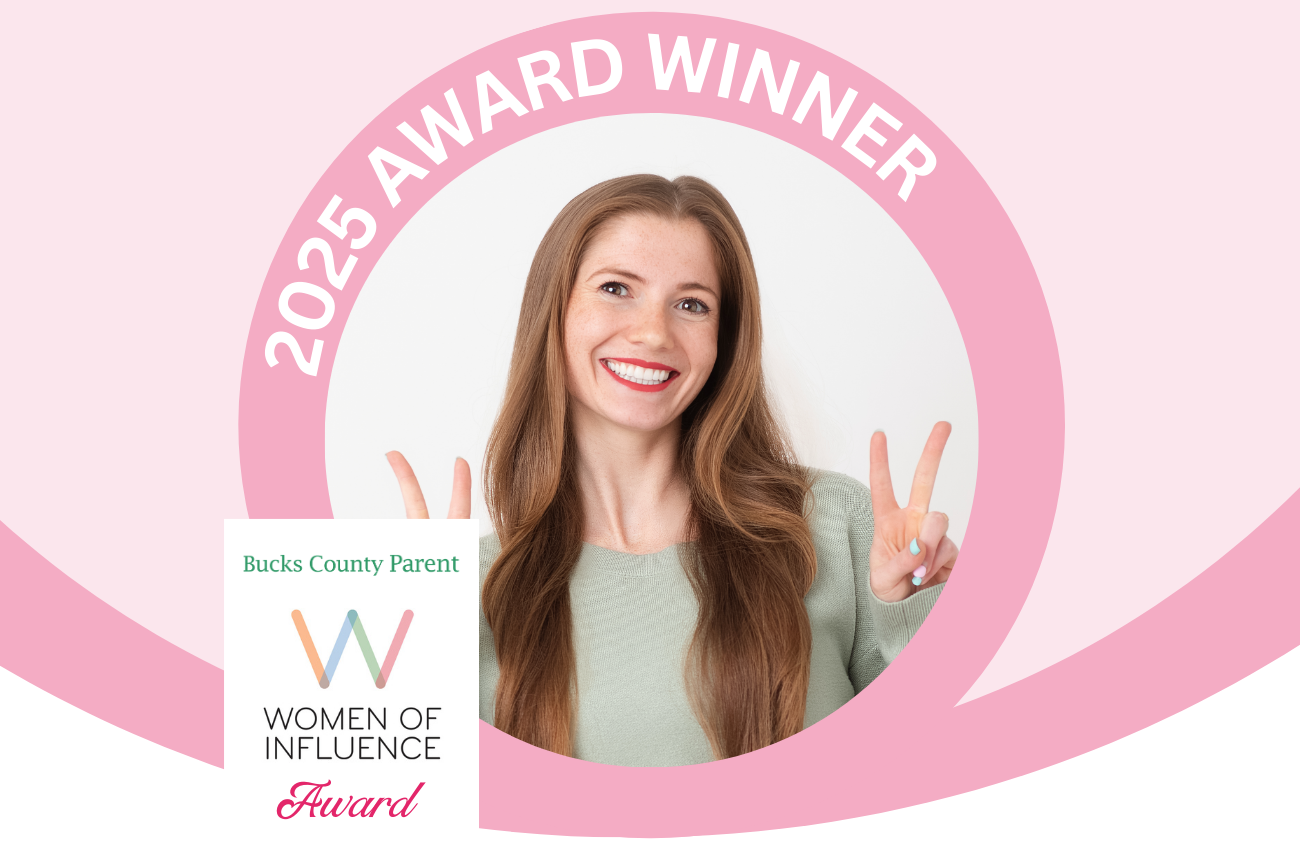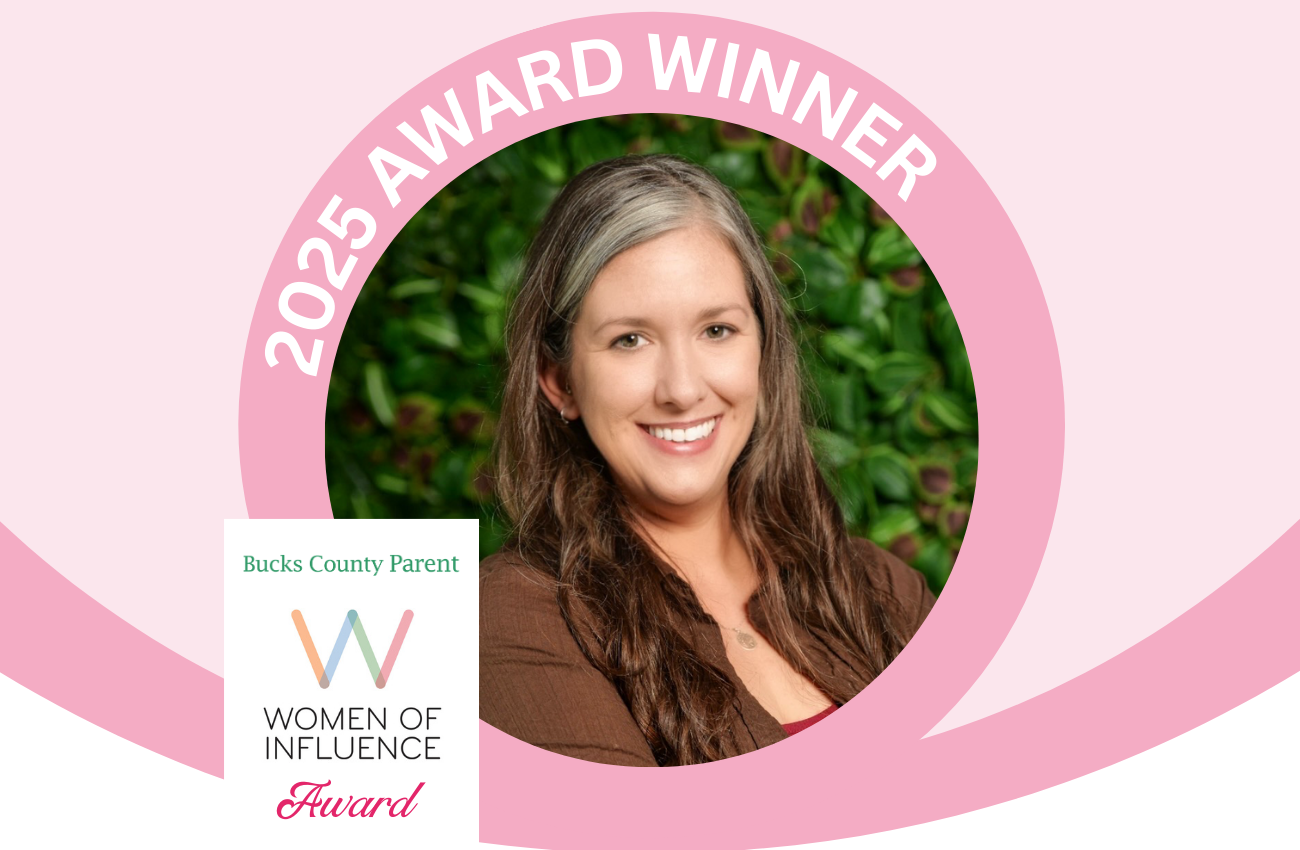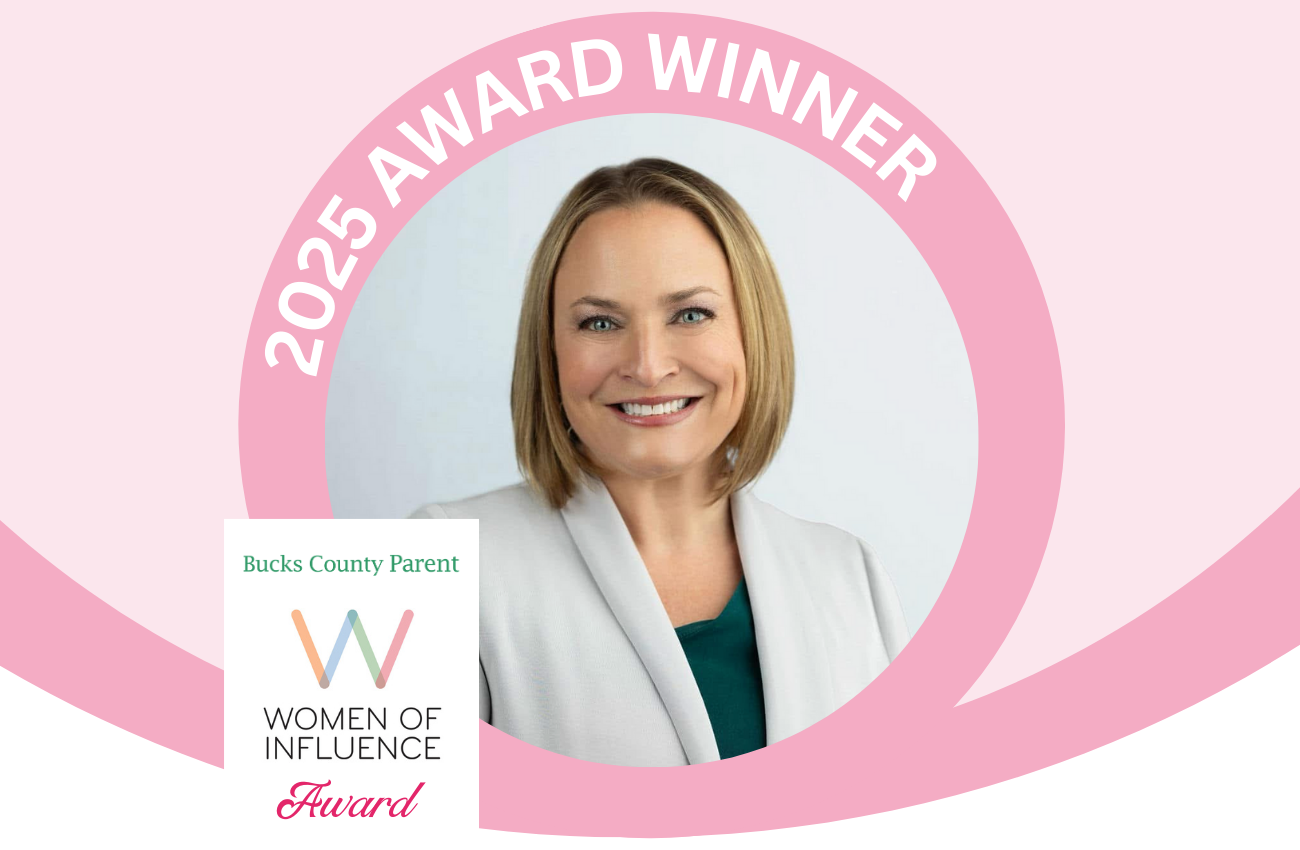Building Brains, Building Futures: Mikala Blaak’s Mission to Transform Learning
At 29, this Newtown native has built a team of 12 and revolutionized how we think about education—proving that when you embrace your neurodivergent brain, magic happens.

Mikala Blaak never expected to become an educational revolutionary, but sometimes the best leaders are forged by refusing to accept “that’s just how things are.” As the founder of Let’s Learn, this 29-year-old Newtown native has spent nearly nine years proving that education doesn’t have to wait for failure to offer support. Growing up in Washington Crossing and attending school through the Newtown system before returning home to build both her business and eventually her family, Mikala has created something remarkable: a place where neurodivergent and neurotypical learners alike can thrive without conforming to traditional educational boxes.
Mikala Blaak is a 2025 Bucks County Parent Women of Influence Award Winner
Bucks County Parent’s Women of Influence Network and Awards celebrate exceptional women making significant impacts in our community. Mikala was nominated by 2023 Women of Influence Award Winner and Owner of Ivory Tree Portrait Studios, Lara Aman Mattey, and selected based on her achievements and dedication to creating positive change in her community. Each Women of Influence Award Winner has committed to support Family Focus Media’s core values. Together, we are committed to foster a sense of belonging and empowerment for all for all families. All backgrounds, races, genders, and sexual orientations are welcome and safe with us.
Beyond the awards, our Women of Influence Luncheons and Speed Networking Night attendees come together as our Women of Influence Network, a community fostering connections, collaboration, and mutual support.
The Spark That Started Everything
Mikala’s path began with a painful realization during her brief career as a special education teacher. “The classic education system taught me to label students, provide services within the confines of diagnosis, and prioritize content over well-being,” she explains. Despite school policy requiring her to wait for students to fail before providing support, Mikala found herself offering emotional, behavioral, and academic help to everyone who needed it.
“I was unwilling to compromise my integrity to satisfy a system that did not have my students’ best interest at heart,” she reflects. That conviction transformed what had been a side tutoring business into something much bigger—a mission to prove that every brain deserves support before struggle, not after.
Embracing the Neurodivergent Advantage
What makes Mikala’s approach revolutionary isn’t just her philosophy—it’s how her own neurodivergent brain shapes everything she does. Diagnosed with ADHD, Mikala has learned to design work that aligns with her brain, not against it.
“I don’t have a standard desk. I move around a lot. You’ll find me doing cartwheels, weird stuff, being funky,” she laughs. “Our rooms are always weird colors. I like to do different accents when I teach. When you embrace that weird and you do it confidently, people see it as confident versus when I would do it and I wasn’t confident, people would be like, ‘Oh, that’s weird.'”
This authentic approach extends to her team meetings, where she might suddenly announce, “Guys, I need to go on a walk. Will anybody go with me?” One team member now brings walking shoes because she knows Mikala’s going to ask. “It’s breaking the typical mold and creating an environment where I can bring my personality to it and not worry about—is it proper? Did I say the right thing? It’s just me being me.”
Private Teaching, Not Tutoring
Walk into Let’s Learn and you won’t find workbooks or “turn to page 72” instructions. “We treat each learner like they have an IEP,” Mikala explains, referring to individualized education plans. “Every time you show up to a session, there is a specific handmade lesson for you. We literally cross-reference state standards, your goals, your strengths, your learning preferences, and make a 12-week plan for every single session.”
For younger students, this means play-based learning where math lessons might involve wearing chef hats and cooking with fractions. “It’s literally like play therapy meets education, but very intentional,” she says. “We’re kind of like sneaky teachers where we’re going to trick our kids into learning by modeling and doing it.”
Older students experience something different entirely—mentorship and mindset work that breaks traditional educator-student boundaries. “You’re going to know my personal things, the wins I’m having, losses I’m having, things that really sucked,” Mikala shares. “It’s treating our pre-teens with independence and treating them like they’re 15 or 16.”
The Seven-Year Success Story
One student perfectly embodies Mikala’s “build your brain” philosophy. Starting as a typical math-help case in elementary school, this relationship has evolved over seven years into something transformational. What began with “I’m not good at math” gradually built confidence in one subject, then spread to all academics, and eventually expanded into personal development.
“The student didn’t just love coming to sessions to learn and get good at school,” Mikala explains. “It was the relationship and the exchange of energy. When I would share my struggles, he would share his.” As trust deepened, their sessions shifted focus. “Mom came to me and said, ‘Don’t even worry about academics. Focus on whatever he needs to talk about to make him more confident.'”
The results speak for themselves: a student who went from struggling academically to making honor roll four years straight, from having few friends to becoming highly social, and from struggling in sports to excelling in multiple activities. Now in high school, he returns to Mikala’s group courses to share the importance of believing in yourself.. “Building yourself was way more powerful than any math test because it was building your brain—learning about yourself, how you learn, and taking care of yourself in multiple ways.”
The Rule of Three and Real-World Application
Mikala’s teaching includes concrete tools like her “rule of three for learning”—the idea that true skill means doing something successfully three times in a row, distinguishing between luck and mastery. But her approach goes beyond theory into action.
Students with social anxiety don’t just talk about confidence—they walk to Starbucks together, giving compliments to two strangers along the way. “It’s not just learning about it. We’re going to do the work. That’s what builds confidence and breeds self-identity—the action behind it, not just knowing the tools but using them.”
Data-Driven Results
Behind the creative approach lies serious accountability. Like applied behavior analysis, every session generates data tracked in state-certified formats. “We take anywhere between 45 minutes to an hour to plan every lesson—creating lesson plans, lesson notes, and tracking data,” Mikala explains. “We’re talking about an actual binder full of data for every kid.”
This documentation proves invaluable when schools claim students can’t perform certain skills. “We say, ‘Guess what, we do have that data, and we even did it in state-certified format,'” she notes. While advocacy is needed for only about 10% of families, having concrete evidence makes all the difference for students with unique needs.
Breaking the System’s Biggest Problem
Ask Mikala what she’d change about education with a magic wand, and her answer is quick and clear: “Denying access to individualized education, having to qualify based on 12 or 13 parameters that a school deems fit, having to fail in order to receive support. Those things are absolutely BS.”
Instead of trying to fix the entire system, her five-year vision focuses on adding personal development curricula into schools. “My goal is to have personal development and ‘build your brain’ in schools, starting with private schools and eventually public schools, to spark something in some kids—to light a fire that gets them thinking their worth isn’t just their grade.”
Building a Team While Building a Life
From a solo side hustle to a team of 12, Mikala’s growth has surprised even her. “I’ve never taken a business course. I find a lot of it is learned as you go,” she admits. “The biggest thing is that I’m capable of a lot more than I thought.”
Her team culture reflects her values—every Friday includes group gym sessions because “I never want them to prioritize themselves last.” As someone without children yet but hoping to start a family soon, Mikala is intentionally scaling back to seven essential roles from the 15 hats she once wore. “I’m truly only doing what I’m called to do and where my talents lie.”
The Power of Potential
For parents and educators reading her story, Mikala’s message is clear: “Your child’s potential isn’t defined by past actions. As soon as you limit what you are capable of, you’re no longer going to see past it.” She believes teaching kids how to learn—regardless of subject—is the most powerful tool we can give them.
“Not all learning is created equal, but when you learn how to learn, it doesn’t matter if it’s school, life, a job, or sports. That’s honestly more powerful than anything.”
At 29, with a September pilot program launching for pre-teens and teens, Mikala continues proving that when we stop waiting for failure and start building brains, every child can discover their potential. In a world that often tries to fit square pegs into round holes, she’s created a place where every shape is celebrated—and every brain can thrive.





